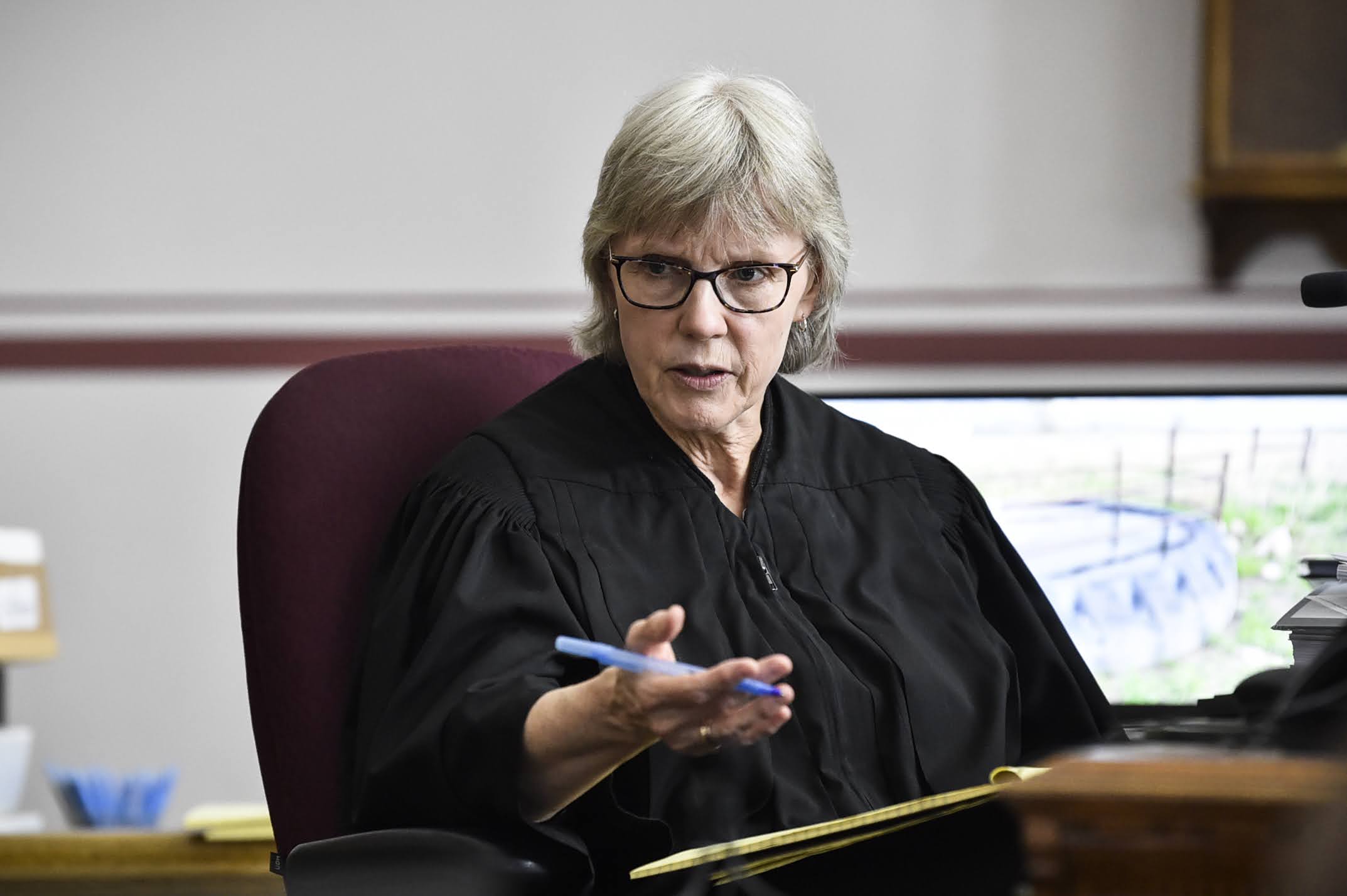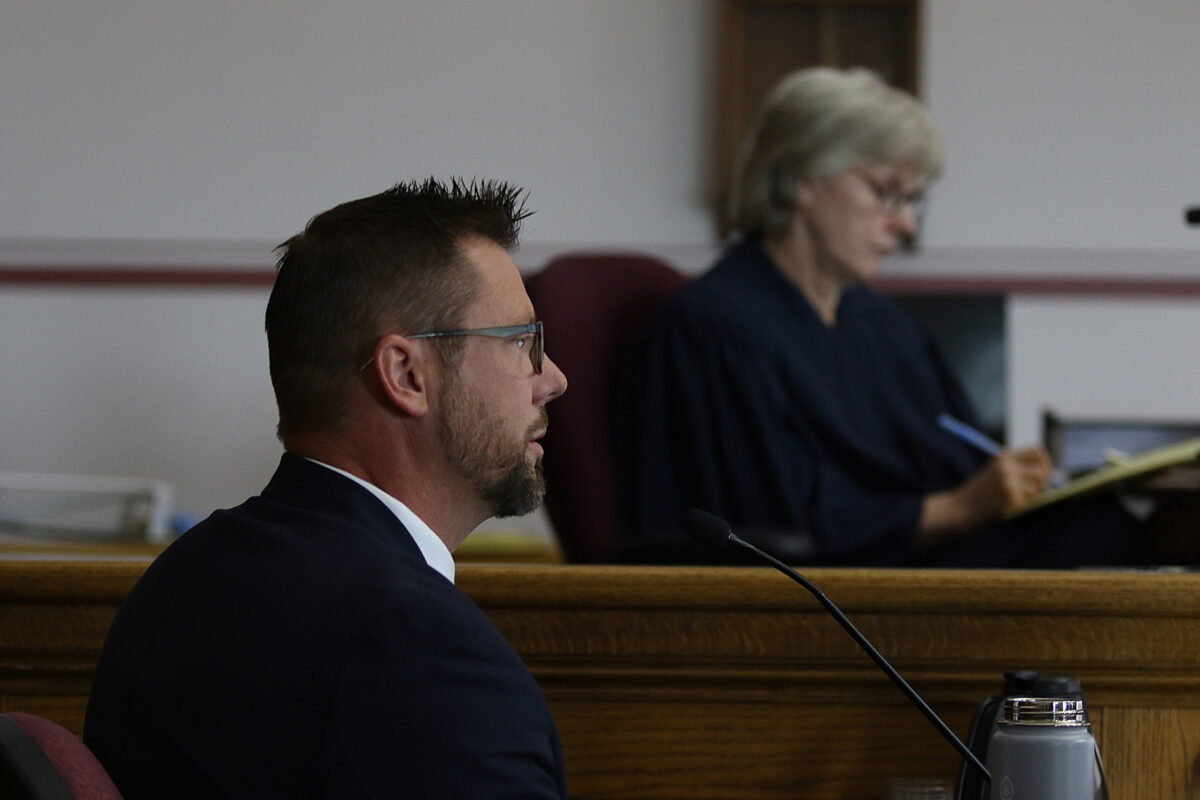State Supreme Court Denies Stay in Held Decision
In a 5-2 majority, justices found the state lacked ‘good cause’ to put the landmark climate decision on hold pending its appeal
By Micah Drew
The Montana Supreme Court in a Tuesday filing denied a request by the state of Montana to stay the decision in the landmark environmental Held v. Montana lawsuit pending the case’s appeal to the Supreme Court.
The August ruling by Lewis and Clark District Court Judge Kathy Seeley declared the 16 youth plaintiffs have a “fundamental constitutional right to a clean and healthful environment,” and found that the state was violating that constitutional right in its fossil fuel project permitting process by banning a review of climate-related impacts.
The Montana Attorney General’s Office appealed the landmark ruling last fall but followed that with a request for Judge Seeley to clarify and stay her decision. Seeley denied the request and the state filed a similar motion with the state Supreme Court on Dec. 1 to prevent Judge Seeley’s decision from being enforced prior to the full appeal.
Tuesday’s 5-2 decision found the state “does not provide good cause” to pause the district court’s ruling.
Representing the minority, Justices Jim Rice and Dirk Sandefur stated they would have granted the motion to stay.
“Yesterday’s Montana Supreme Court ruling rejected the State’s attempt to maintain a dangerous status quo — one that already harms both Montana’s natural environment as well as the 16 Held youth plaintiffs,” Nate Bellinger, one of the lead attorneys for the plaintiffs, said in a statement following the order’s filing. “The Montana Supreme Court agreed with the District Court and the plaintiffs that the State had not satisfied the criteria necessary for a stay of Judge Seeley’s declaratory judgment or injunction. The state did not show they would suffer irreparable harm absent a stay and or that the public interest would be served by allowing the state to continue implementing an unconstitutional law.”
Lawyers for Montana argued that the Held decision exceeded the district court’s authority, would likely be overturned on appeal, and in the meantime would require state agencies to develop and implement methods to analyze greenhouse gas emissions and climate impacts that would be unnecessary if the state wins its case.
The state “will be forced to spend considerable resources to develop and implement methods for greenhouse gas and climate impacts analysis and, if not done with proper care, it will open itself up to liability for damages caused by a ‘slipshod analysis cobbled together to avoid contempt of widespread litigation against State agencies’ MEPA review and permitting decisions,’” according to the ruling.
However, the court found fault with this argument, specifically citing testimony from the June bench trial in which the director of the Montana Department of Environmental Quality (DEQ) testified the department had previously analyzed greenhouse gas emissions and climate impacts in conducting reviews under the Montana Environmental Policy Act. Reimplementing such analysis would not be “exceedingly burdensome,” according to the court.

The court’s majority concluded that Judge Seeley did not “act arbitrarily or exceed the bounds of reason,” in denying the State’s initial motion to stay, and upheld the decision.
“The state did not establish that it is likely to succeed on appeal because it did not identify errors in the underlying decision … Held will suffer irreparable harm if the District Court’s ruling is stayed; and the State failed to demonstrate that the public interest would be harmed if a say is denied. In weighing these factors, the court concluded that it was appropriate to deny the State’s motion for stay,” the order states.
A spokesperson for the Attorney General’s office criticized the court’s decision in a prepared statement.
“The Court failed to provide stability and clarity under the unique circumstances presented by this case,” Emilee Cantrell, deputy communications director said. “While we disagree with the Court’s underlying analysis, we are confident in the merits of our appeal and look forward to arguing them before the Court.”
Opening briefs by the state for the full appeal process are due to be filed by Feb. 13.
The full decision can be read below.